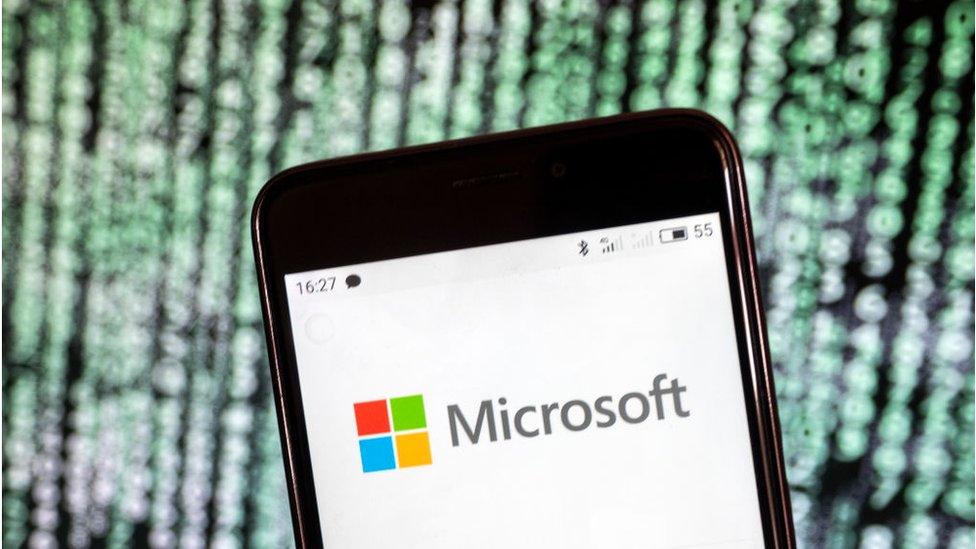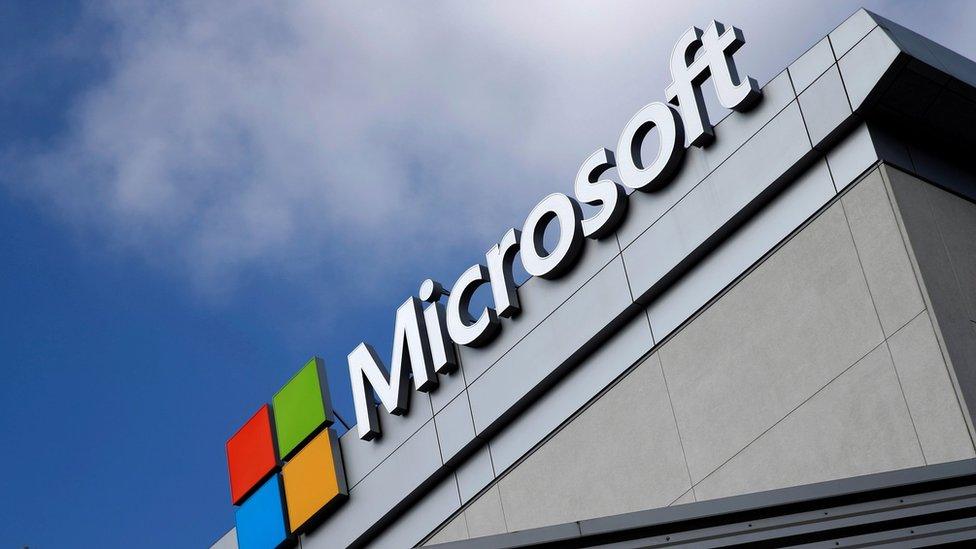China says Microsoft hacking accusations fabricated by US and allies
- Published

The Microsoft hack affected at least 30,000 organisations globally
China has denied allegations that it carried out a major cyber-attack against tech giant Microsoft.
The US and other Western countries on Monday accused China of hacking Microsoft Exchange - a popular email platform used by companies worldwide.
They said it was part of a broader pattern of "reckless" behaviour that threatened global security.
China says it opposes all forms of cyber-crime, and has called the claims "fabricated".
China's foreign ministry spokesman said the US had got its allies to make "unreasonable criticisms" against China.
The UK, EU, New Zealand, Australia and others joined the US to accuse Chinese state-sponsored hackers.
Microsoft's Exchange system powers the email of huge corporations small businesses and public bodies. The hack affected at least 30,000 organisations around the world.
Microsoft blamed a Chinese cyber-espionage group for targeting a weakness in Microsoft Exchange, which allowed hackers to get into email inboxes.
It said the group, known as Hafnium, was state-sponsored and based in China.
Western security sources believe Hafnium knew Microsoft had planned to deal with the weakness, and so shared it with other China-based hackers.
The sources say the hack seems to signal a shift from a targeted espionage campaign to a smash-and-grab raid, leading to concerns that Chinese cyber-behaviour is escalating.
The UK Foreign Office said the Chinese government had "ignored repeated calls to end its reckless campaign, instead allowing state-backed actors to increase the scale of their attacks".
US President Joe Biden said the Chinese government may not have been carrying out the attacks itself, but was "protecting those who are doing it. And maybe even accommodating them being able to do it".
The US Department of Justice on Monday announced criminal charges against four hackers linked to China's Ministry of State Security. It said they were connected to a long-term campaign targeting foreign governments and entities in key sectors in a least a dozen countries.

You might also be interested in:
Nato warns cyber attacks could result in a military land incursion from allies (June 2021)
Related topics
- Published19 July 2021

- Published8 March 2021
- Published3 March 2021
